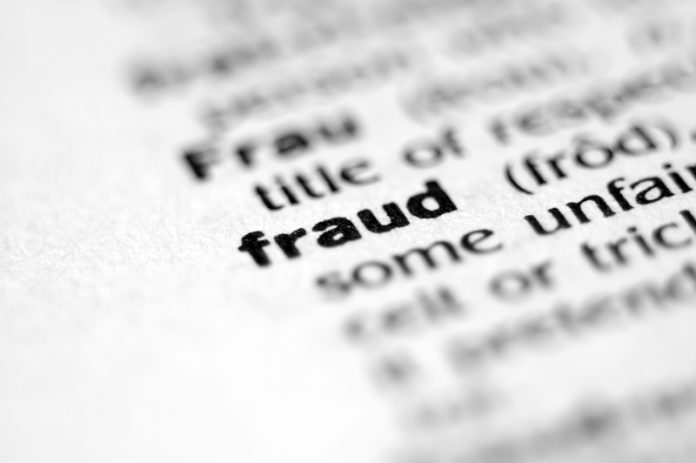
Joel Alleyne from the Global Health Care Anti-fraud Network (GHCAN) outlines how the organisation helps with the fight against healthcare fraud
At a conference in Edinburgh in October 2009, the European (including the UK NHS), American, and Canadian health care anti-fraud associations signed a Memorandum of Understanding to combine their efforts to fight fraud globally. These groups were joined shortly after by the UK private insurers and later by the private health insurers in South Africa. This created the Global Health Care Anti-fraud Network – a network of organisations fighting fraud. GHCAN promotes partnerships and communications between international organisations in order to reduce and eliminate health care fraud around the world.
GHCAN’s activities are aimed at:
- Raising awareness internationally about the issue of health care fraud;
- Gathering and sharing information on the trends, issues, facts and figures relating to the problem;
- Working cooperatively to improve international standards of practice around fraud prevention, detection, investigation and prosecution; and,
- Developing joint educational training programs in order to bolster and prepare the world’s health care anti-fraud professionals.
Working together, GHCAN members share research and best-practices in counter-fraud measures. One member is often ahead of the others in an area. For example, the US (NHCAA) has led others in the use of data analytics and technology-enabled tools. The UK (HICFG) has led the way in knowledge sharing and building communities of practices for the individual counter-fraud specialists. The Europeans (EHFCN) have developed risk management frameworks. Working in the network, these advances are shared and picked up by other members. Often local marketing or social media campaigns are reused in other countries.
Although the fight against health care fraud takes place on a national or regional level, groups of fraud perpetrators act without borders. Health care fraud knows no boundaries. Those who seek to defraud healthcare systems often operate across national borders. Fraud schemes cross borders. In an Internet-connected world, fraud schemes travel from country to country with few barriers. Health care funders/payers who spot new schemes can now share these with their national and regional counterparts, and indeed, through GHCAN across the world. Fraud schemes are similar across jurisdictions so the global healthcare and fraud network allows healthcare organisations, insurance companies and other payers to recognise fraud schemes on a more rapid basis. Fraud schemes (such as faked car accidents, ‘billing for services not rendered’ or ‘providing unnecessary services’) are found in all jurisdictions.
Members of GHCAN have quicker access to information on new and developing fraud schemes as they are discovered. A fraud scheme picked up by the National Health Service or an insurance company in the UK might affect an organisation in the US or Canada or the Middle East. GHCAN facilitates the sharing of this information and knowledge on a global basis. Once these fraud patterns are identified, then they are easier to spot or detect.
Medical and healthcare devices are not always licensed for use in all countries. However, these devices can often be purchased and distributed using the internet. If a device is not licensed in your country; perhaps there is a reason. GHCAN links organisations and provides a conduit for information in this area.
Counterfeit drugs are often manufactured in one country and sold to patients in another. Counterfeit medicines often have no active or medicinal ingredients and at the extreme, can lead to patient death. Similarly, grey market products for counterfeit devices make their way across borders and into the hands of patients. ‘Snake oil’ sales on the Internet are hard to counter because the criminals behind these products often hide in one jurisdiction while shipping their goods from another. Online pharmacies and stores present a problem for law enforcement and organisations with limited reach jurisdictionally. Working together, GHCAN is seeking to inform and work with regulators in various jurisdictions.
Medical tourism is a doubled edged sword. On one hand, it allows patients to go to jurisdictions with special expertise or extra capacity for medical procedures and services. Indeed, in our member countries, there are many organisations that treat patients from abroad. However, there are often clinics and practitioners in other countries who prey on our citizens with dubious treatments and modalities. One such clinic was found offering dubious cancer treatment from Mexico, whilst another was found offering suspect stem cell treatments offshore. Practitioners move from country to country.
Sometimes when they lose a license in one country they’ll move and set up in another. We have seen cases where doctors surrender their licenses to a state board and move to another country and re-establish a practice. One surgeon was found in British Columbia, Canada, operating and making the same medical errors that caused him to give up his license in Arizona. In other cases, practitioners flee charges in one jurisdiction and move to another. Such is the case of a Canadian doctor who moved to Newcastle in the UK while being under investigation for significant health care fraud activities.
We often see fraudulent travel plan claims made by individuals traveling to other countries and coming home with medical bills from hospitals, doctors or clinics which may or may not exist.
GHCAN affords its members an opportunity for increased counter fraud awareness. Over the last 5 years, the annual GHCAN Summit has moved around the world, allowing local members a glimpse into the broader reach of their counterparts. Our 2016 Summit will be in the UK.
About GHCAN
GHCAN was jointly founded by the Canadian Health Care Anti-Fraud Association, the European Healthcare Fraud & Corruption Network, the Health Insurance Counter Fraud Group (based in the United Kingdom), the Healthcare Forensics Management Unit (based in South Africa), and the National Health Care Anti-Fraud Association (based in the United States).
Joel Alleyne is a management consultant who has worked with GHCAN since its inception. He was the Executive Director for the Canadian Health Care Anti-fraud Association through 2015 and is currently involved in research in health care fraud and in crime science.
Joel Alleyne
Global Health Care Anti-fraud Network
info@ghcan.org










